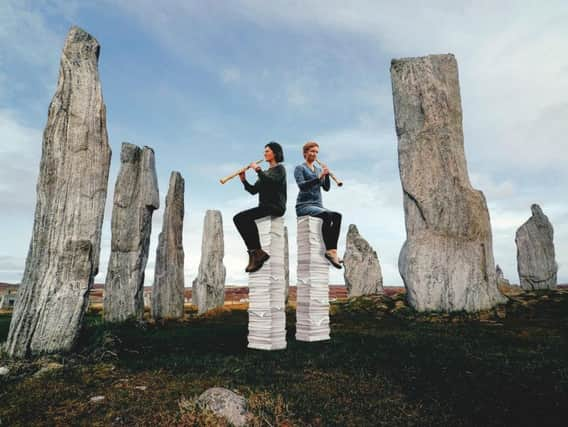Dunedin Consort shows growing ambition at home and abroad


The decision was quickly reversed in the wake of bewildered protest, and today Scotland’s internationally-famed early music ensemble is not only centre stage at the current Edinburgh International Festival – a seven-concert Bach series culminating in this morning’s Queen’s Hall programme of secular cantatas utilising “the biggest orchestra Bach ever assembled” – but is about to embark on its most extensive and ambitious winter season yet.
The ensemble is thinking big according to new chief executive Jo Buckley, who is honest enough to suggest that the 2018 scare “was actually one of the best things that happened to us.” Whereas two years ago Dunedin were playing around 25 concerts a year, there will be 40 performances this season. “We’re not just back to where we were, but the scale of activity has increased enormously,” says Buckley.
Advertisement
Hide AdIt’s all photographic sleight of hand, of course, and it’s part of a deliberate new push to get the message out that early music does not equal nerds with awful haircuts and bendy bows. “I think in the past we haven’t shouted loud enough about who we are and what we’ve done,” says Buckley.
What Dunedin already is is an international force par excellence. Having just completed a successful first venture to America, opening the Boston Early Music Festival, they now have dates in January for concerts in Los Angeles, Washington and Philadelphia. “We’re going to South America in December,” Buckley adds. “We’re really increasing our presence across the globe.”
This comes on top of a touring record in Europe and London that has, under music director and Bach expert John Butt, seen the group in the most prestigious settings. This September (11th) sees a return to the BBC Proms for a performance of Bach’s four Orchestral Suites. Next July, Dunedin are back at London’s Wigmore Hall, teaming up with countertenor Iestyn Davies.
For a group that nearly bit the dust last year, why such startling limelight? “I think our recordings play a large part in that,” Buckley explains, referring to the multi-award-winning releases on the Linn label: prize recordings of Handel and Bach that continue this October with Handel’s Samson, a work Dunedin performed at last year’s Edinburgh International Festival.
“We’ve recorded two versions of the choruses, the first time anyone will have done this,” says Buckley. One is with the soloists only acting as chorus, as Handel would have done on occasion; the other uses a full choir, as he did in 1743, which involves the London-based Tiffin Boys Choir.
“My feeling is that we present historical performances in a way intended to make audiences feel they’re experiencing the music for the very first time,” says Buckley. “There’s a really nice partnership there with exploring contemporary music.”
Advertisement
Hide AdNext month’s Proms programme will test her theory, where Bach’s 4 Suites will be complemented by new commissions from Stuart MacRae, Nico Muhly, Ailie Robertson and Stevie Wishart.
But what’s happening at home for Dunedin? More than in the past, it seems. Following an upcoming residency at the Lammermuir Festival, and besides the now traditional Christmas Messiah and Easter St Matthew Passion (directed by Kristian Bezuidenhout), is a new Choral Tour “Requiem Aeternam,” conducted by singer Nicholas Mulroy and combining contemporary works with Victoria’s Officium Defuntorum; the complete Bach Brandenburgs under John Butt; James MacMillan’s Seven Last Words of the Cross in collaboration with the Scottish Ensemble; and a tour of Purcell Songs and Ayres featuring Scots soprano Mhairi Lawson taking in Findhorn, Dumfries and Oban.
Advertisement
Hide AdThe message is clear: Dunedin is based in Scotland and wants to be seen there. “Creative Scotland gives us 13 per cent of our funding now, which supports specifically what we do in Scotland,” says Buckley. “Take it away and we just couldn’t perform here.”
